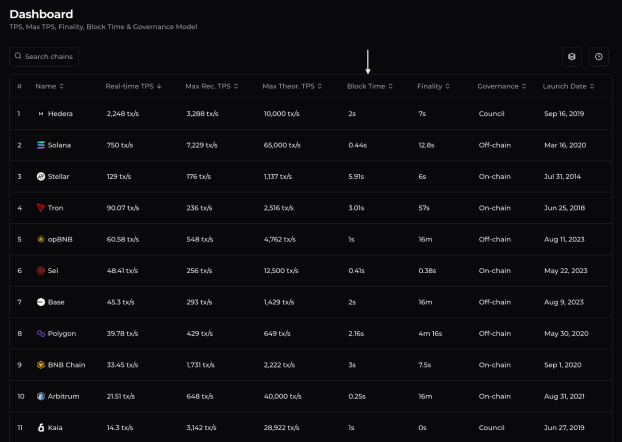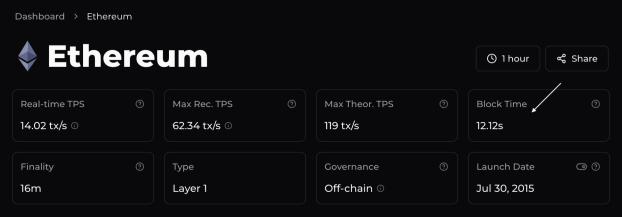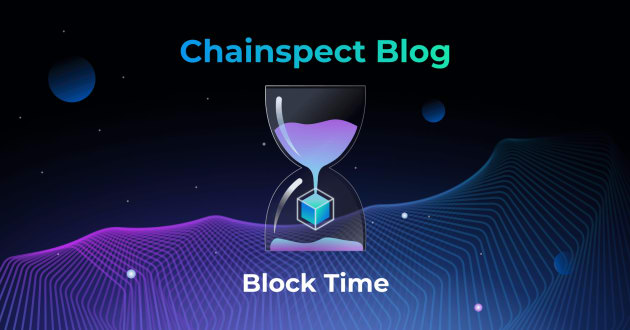Block time is the average amount of time it takes for a blockchain to produce a new block.
After a block is successfully produced, it appears on the ledger and extends the blockchain.
What is a Block?
A block in a blockchain is a digital record of transactions. It contains data, such as transaction details, a timestamp, and a reference to the previous block, forming a chain of blocks (hence the name “blockchain”). Each block also includes a unique identifier called a hash — a cryptographic representation of the block’s data.
What is Block Time?
Block time is the time interval between the creation of successive blocks in a blockchain. It is essentially the frequency at which new blocks are added to the blockchain. This metric is measured in seconds or minutes.
Block time determines the speed of transaction confirmation and thus influences the transactions per second (TPS) rate. A shorter block time means faster transaction confirmation. For example, Bitcoin has a block time of around 10 minutes, while Ethereum’s block time is roughly 13 seconds, leading to quicker transaction confirmations on Ethereum.
Factors Affecting Block Time
There are several factors, that impacts the time it takes to verify each transaction and create each block.
Consensus Mechanism
Different mechanisms like proof-of-work, proof-of-stake, or delegated proof-of-stake have varying impacts on block time.
Network Load
Higher transaction volumes can affect the time it takes to validate and add blocks.
Block Size
Larger blocks with more transactions can take longer to process and validate.
Network Efficiency
The overall efficiency of the network, including the speed of nodes and the communication between them, affects how quickly blocks are created and added.
Block Time of the Most Popular Blockchains
Block time differs for every blockchain. Some allow faster block times than others. Depending on the blockchain, a new block can be mined in a matter of seconds, or it can take a few minutes.
At Chainspect, we track block times for all our blockchains and show it on the dashboard

and on individual chain pages. For example, here is the Ethereum chain page.

